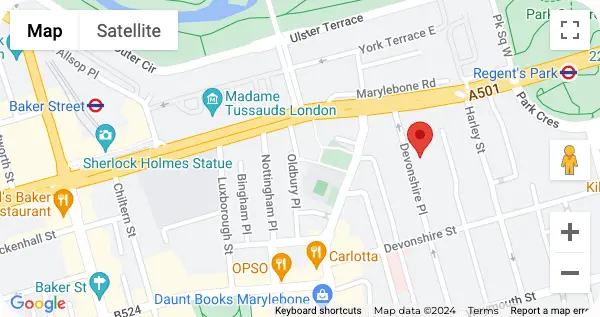Condition: Psoriasis
Psoriasis symptoms
& causes

Dermatological
Non-surgical
Surgical
Body Concerns
Health & Wellness
Skin & Face
Expert care for a wide range of skin conditions, ensuring healthy, radiant skin.
Lesions & Bumps
Comprehensive care for skin lesions and bumps, promoting clear and healthy skin.
Lifting & Tightening
Advanced treatments to lift and lighten the skin, enhancing firmness and brightness.
Rejuvenation
Revitalize your skin with advanced treatments designed to restore a youthful glow.
Skin Treatments
Effective solutions for a variety of skin concerns, promoting clear and healthy skin.
Wellness
Holistic skincare approaches to support overall skin health and well-being.
Advanced, non-invasive treatments to rejuvenate your appearance without surgery.
Body Treatments
Transformative, non-invasive treatments to sculpt and tone your body effortlessly.
Facial Treatments
Rejuvenating facial treatments to refresh and enhance your natural radiance.
Hair Treatments
Advanced treatments to restore hair vitality and promote healthy growth.
Injectables
Minimally invasive injectables to smooth wrinkles and enhance facial contours.
Precision cosmetic surgery tailored to enhance and refine your natural beauty.
Body Surgery
Expertly performed body surgeries to reshape, contour, and enhance your physique.
Breast Surgery
Specialized breast surgeries to enhance shape, size, and symmetry for a natural look.
Cosmetic Andrology
Advanced procedures designed to enhance male aesthetics and address intimate concerns.
Cosmetic Gynaecology
Tailored surgical solutions to enhance feminine aesthetics and improve intimate well-being.
Facial Surgery
Precision facial surgeries to refine features and achieve natural, balanced results.
Fat Transfer/Removal
Advanced fat transfer and removal techniques to sculpt and enhance your body’s contours.
Comprehensive solutions to address a range of body concerns, from stubborn fat to skin laxity.
Breasts
Tailored solutions for breast concerns, including size, shape, and symmetry.
Other Areas
Targeted solutions for stubborn areas of the body, tailored to your unique needs.
Volume & Contouring
Specialized treatments to enhance body volume and improve overall contour for a balanced silhouette.
Holistic care focused on improving overall health and well-being for a balanced lifestyle.
Digestive Health
Comprehensive care to support digestive health and improve overall well-being.
Energy & Immunity
Holistic approaches to boost energy levels and strengthen your immune system for optimal health.
General Health
Personalized strategies to maintain and enhance your overall health and vitality.
Expert care for a wide variety of skin and facial concerns, promoting a healthy, glowing complexion.
Ageing Signs
Expert treatments to minimize ageing signs, rejuvenating your skin for a youthful glow.
Skin Texture & Tone
Advanced treatments to improve skin texture and even out tone for a smoother, radiant complexion.
Specific Areas
Targeted treatments to address skin concerns in specific facial areas for balanced, refined results.
Volume & Contouring
Tailored solutions to restore facial volume and enhance natural contours for a more youthful appearance.

What is Psoriasis?
Have you ever spotted dry, scaly patches on someone’s skin? That might be psoriasis, a chronic skin disease that impacts millions of people around the globe. It’s not just a simple rash — it’s an autoimmune disease that causes the body to incorrectly speed up the life cycle of skin cells, resulting in their accumulation to form red, scaly skin patches. Is psoriasis contagious? No, it’s not, but it can be hard to manage and can decrease a person’s confidence.
Psoriasis doesn’t all look the same. Here are the five main types:
You should see a doctor if:
A dermatologist is best equipped to recommend an effective psoriatic disease treatment plan to help manage symptoms and improve your quality of life.
Psoriasis happens when the immune system is overactive, causing inflammation and accelerated growth of skin cells. Instead of the regular 30-day cycle for new healthy skin cells, psoriasis accelerates this process to three or four days. Such excess cell buildup results in thick, scaly patches on the skin. The specific cause is not completely understood, but several major factors include:
Psoriasis is a chronic skin disease driven by both genetics and environmental triggers. The underlying causes of psoriasis are still being studied, but researchers think certain things can make it more likely you will develop psoriasis, or have a flare of symptoms.
Genetics: You may be at greater risk of developing it if you have a family member with psoriasis. The condition tends to run in families because genes that affect the immune system are inherited.
Skin injuries: Scrapes and cuts, sunburns and even tight clothes that rub against the skin can lead to new patches of psoriasis. This is called the Koebner phenomenon.
Infections: Bacterial and viral infections, like strep throat, bronchitis or the flu can make the immune system weaker, leading to psoriasis flares, especially among children and young adults.
Certain medications: Certain drugs such as lithium, antimalarial agents, and beta-blockers can make psoriasis worse or even trigger it.
Obesity: Heavy weight might cause more serious conditions of psoriasis. Research indicates that a healthy weight might assist in controlling the disease.
Environmental triggers: Extreme hot and cold temperatures, dry air and humidity can all cause psoriasis flare-ups. Moderate amounts of sunlight may be helpful, but excessive sunlight may make the symptoms worse.
Lifestyle factors
Psoriasis can’t be cured, but being aware of these risk factors can help manage your symptoms and decrease flare-ups.
Inflammation from psoriasis can worsen insulin resistance.
Inflammation may be associated with weight gain and metabolic syndrome.
Some studies have reported links between psoriasis and imbalances in cholesterol.
The greater inflammation might increase prevention of strokes and heart attacks by 50%.
Proper skin care can minimise psoriasis flare-ups. Regular moisturising is important to avoid drying and cracking, which can set off symptoms. Using mild, fragrance-free products keeps irritation to a minimum, and skipping soaps or exfoliants keeps the skin barrier intact.
Protecting the skin from psoriasis triggers
One way to keep your skin hydrated is drinking plenty of water and using moisturizer right after the shower. Soft, breathable fabrics minimise irritation, and sunscreen prevents damage from UV rays. Steering clear of long hot showers and scrubbing heavily also preserves skin health.
Yes, stress is a common trigger of psoriasis. When you’re stressed, the immune system goes into overdrive, which promotes inflammation and aggravates symptoms. Identifying ways to de-stress and unwind can help you avoid flare-ups and manage symptoms.
Stress-management techniques
Engaging in mindful meditation or deep breathing exercises can reduce stress levels. Practicing your favorite physical activity like yoga or walking on a daily basis also maintains a healthy mind. And, prioritising good sleep and seeking professional support, if needed, can further help to manage stress.
An anti-inflammatory diet is beneficial as it helps reduce inflammation, which in turn can help prevent psoriasis flare-ups. Nutrient-rich foods can promote good immune system functioning, and avoiding inflammatory foods, like processed foods and too much sugar, can lessen flare-up severity.
Choosing the right foods
Incorporate foods, such as fruits, vegetables, nuts, and omega-3 fatty acid-rich fatty fish. Avoid or limit red meat, dairy, alcohol and processed foods, as all of these can promote inflammation. Drinking sufficient water also keeps your skin healthy.
Injuries to the skin like cuts, burns or insect bites can also cause new psoriasis plaques to emerge. This is known as the Koebner phenomenon and happens when trauma to the skin triggers a flare-up in affected people. Knowing this can also prevent symptoms of psoriasis flaring, as being prone to injury.
Minimise skin irritations
Protective clothing, gloves when dealing with harsh chemicals, and resisting the urge to scratch or pick at the skin can help prevent damage. Avoiding irritating skin-care products as well as reducing friction from tight clothing can also minimise irritation and lower the chances of flare-ups.
Yes, lifestyle factors like smoking, drinking, and lack of exercise can elevate the risk for psoriasis and worsen flare-ups. Healthier food choices can help keep a balanced immune system and decrease systemic inflammation.
Lifestyle changes that can prevent psoriasis
The severity of psoriasis can also often be considerably reduced by quitting smoking and by not drinking alcohol. Regular exercise promotes overall health, and staying within your target weight range may help improve psoriasis symptoms. Opt for good sleep and keep your skin care habit.











David Perkins
Saw Dr Omar who was great, friendly and professional.
Gillian And Bill McLeod
Wonderful consultation with Lesley!

Yasmin Juma
Very good service
Frida Carlow
Great treatment! Very helpful receptionist!
Mariana O.
The best clinic !

Prabs Rai
Painless and very reassuring

Robin Saxen
Very welcoming and informative.
Judith Durham
Very helpfull and amazing expirence

Ivelina Mileva
Fast, professional service with excellent quality!
Sarah Conners
Very professional and excellent care. Lovely premises.
59,645
Happy patients served.
Need to reach us?
Contact or visit our clinic.
We're based in central London at the historic 14 Devonshire Pl which is only a short 2 minute walk from Regents Park tube station a 10 minute taxi journey to Kings Cross, and St Pancras stations.
We're open Monday - Friday 8am - 8pm, and Saturdays 9am - 5pm, feel free to drop in to talk to a member of our team where they can answer any of your questions.
Alternatively book a free consultation, request a callback, or call us on 0207 4364441.
